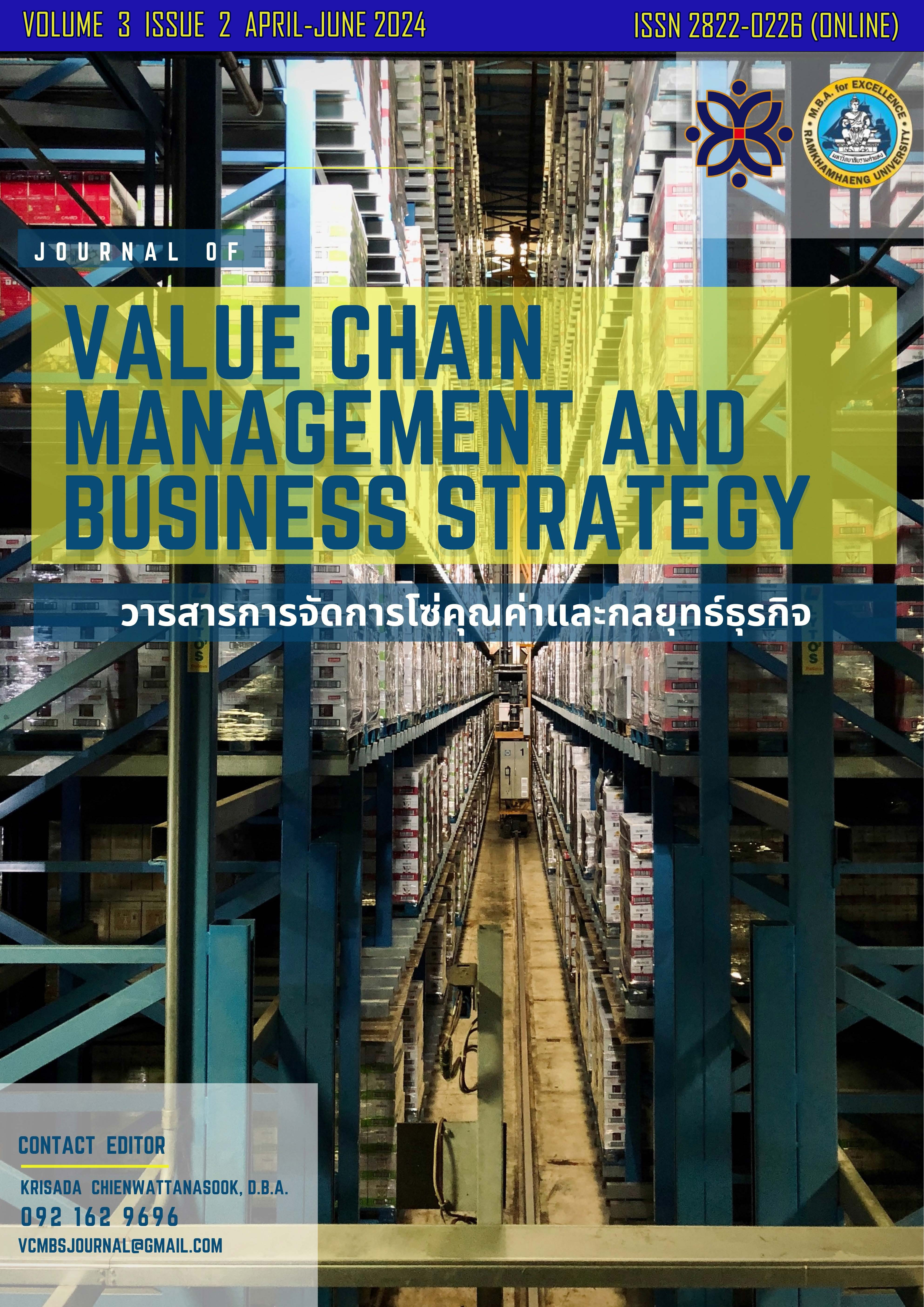หลักการพัฒนาทรัพยากรมนุษย์ในด้านการฝึกอบรมการเจรจาต่อรองขั้นพื้นฐานเพื่อการจัดการความขัดแย้งที่มีประสิทธิภาพ
คำสำคัญ:
การพัฒนาทรัพยากรมนุษย์ , การฝึกอบรม , การเจรจาต่อรอง , การจัดการความขัดแย้งบทคัดย่อ
บทความนี้มีวัตถุประสงค์เพื่อแสดงให้เห็นถึงหลักการพัฒนาทรัพยากรมนุษย์ในการฝึกอบรมการเจรจาต่อรองขั้นพื้นฐานและวิธีการประยุกต์ใช้หลักการเหล่านี้เพื่อการจัดการความขัดแย้งภายในองค์กร ผ่านการทบทวนวรรณกรรมจากเอกสารและงานวิจัยในอดีต การฝึกอบรมการเจรจาต่อรองช่วยลดความขัดแย้งและส่งเสริมการทำงานเป็นทีม โดยมุ่งเน้นที่ผลประโยชน์สูงสุดต่อองค์กร อีกทั้งยังช่วยพัฒนาทักษะเฉพาะบุคคลในการเจรจาต่อรองนอกองค์กร เพื่อเพิ่มความสามารถในการบรรลุเป้าหมายและความสำเร็จในสถานการณ์ต่าง ๆ อย่างมีประสิทธิภาพ โดยการพัฒนาทรัพยากรมนุษย์ควรเน้นที่การฝึกอบรมการเจรจาต่อรองอย่างเป็นระบบ โดยควรมีการกำหนดเป้าหมายที่ชัดเจนและวิเคราะห์ความต้องการของผู้ฝึกอบรมอย่างละเอียด การพัฒนาเนื้อหาและกระบวนการฝึกอบรมควรสอดคล้องกับบริบทและความต้องการขององค์กร รวมถึงการติดตามและประเมินผลอย่างต่อเนื่องเพื่อปรับปรุงการฝึกอบรมให้มีประสิทธิภาพสูงสุด นอกจากนี้ การฝึกอบรมควรมุ่งเน้นที่การประยุกต์ใช้ทักษะการเจรจาต่อรองในสถานการณ์จริง เพื่อให้ผู้ฝึกอบรมสามารถนำไปใช้ได้ทั้งในชีวิตการทำงานและชีวิตประจำวัน ดังนั้น องค์กรควรส่งเสริมการฝึกอบรมอย่างต่อเนื่องเพื่อพัฒนาทักษะการเจรจาต่อรองและการจัดการความขัดแย้งให้กับบุคลากรในทุกระดับเพื่อเสริมสร้างวัฒนธรรมองค์กรที่มีความสามัคคีและมีประสิทธิภาพในการทำงานร่วมกัน
เอกสารอ้างอิง
เกียรติศักดิ์ วัฒนศักดิ์. (2553). การเจรจาต่อรอง. วารสารนักบริหาร, 30(1), 74-79.
ชาตรี สุขสบาย. (2566). กรอบแนวทางการศึกษาการพัฒนาคนสู่ยุทธศาสตร์การพัฒนาทรัพยากรมนุษย์. วารสารสหวิทยาการนวัตกรรมปริทรรศน์, 6(6), 327-341.
ชูชัย สมิทธิไกร. (2554). การฝึกอบรมบุคลากรในองค์การ (พิมพ์ครั้งที่ 7). โรงพิมพ์แห่งจุฬาลงกรณ์มหาวิทยาลัย.
โชติชวัล ฟูกิจกาญจน์. (2559). การพัฒนาทรัพยากรมนุษย์. ซีเอ็ดยูเคชั่น.
ฐิติทัตน์ นิพนธ์พิทยา. (2561). การเจรจาต่อรองในการบริหารจัดการภาครัฐ. วารสารวิจยวิชาการ, 1(2), 137-153.
ดุสิต ขาวเหลือง. (2554). การฝึกอบรมที่มีประสิทธิภาพและสมรรถนะ. วารสารการศึกษาและพัฒนาสังคม, 7(1), 18-32.
ธนัสถา โรจนตระกูล. (2562). การจัดการความขัดแย้งเชิงสร้างสรรค์. วารสารวิชาการ คณะมนุษยศาสตร์และสังคมศาสตร์ มหาวิทยาลัยราชภัฏนครสวรรค์, 6(2), 69-83.
ธีรพันธ์ เชิญรัมย์. (2563). องค์การแห่งการเรียนรู้: การเรียนรู้จากการปฏิบัติ. วารสารวิจยวิชาการ, 3(1), 185-196.
ปวริศ อนุสรณ์พานิช. (2566). เอกสารประกอบการบรรยายรายวิชา บธ.366402 เทคนิคการเจรจาต่อรองทางธุรกิจการบิน. คณะบริหารธุรกิจ มหาวิทยาลัยเกริก.
ภวิศา โชติธนาวรรธ. (2565). การจัดการความขัดแย้งและการระงับข้อพิพาทด้วยวิธีการเจรจาต่อรอง. วารสารกฎหมายและสังคมรังสิต, 4(3), 46-57.
ไมเคิล วัตกินส์. (2566). Negotiation [กลยุทธ์การเจรจาต่อรอง] (ไพโรจน์ บาลัน, ผู้แปล). เอ็กซเปอร์เน็ท.
วรรณวิมล อัมรินทร์นุเคราะห์. (2562). การจัดการเปลี่ยนแปลงและการพัฒนาองค์การ (พิมพ์ครั้งที่ 3). สำนักพิมพ์มหาวิทยาลัยรามคำแหง.
วัชราภรณ์ บุญญศิริวัฒน์. (2563). การเจรจาต่อรองอย่างมีประสิทธิภาพ. https://www.psy.chula.ac.th/th/feature-articles/negotiation/
ศรีเสด็จ กองแกน. (2566). การจัดการความขัดแย้ง. วารสารส่งเสริมและพัฒนาวิชาการสมัยใหม่, 1(2), 36-49.
สถาบันเพิ่มผลผลิตแห่งชาติ. (2558). Unlock Productivity Lesson. https://www.ftpi.or.th/2015/2829
สมชาติ กิจยรรยง. (2560). เกมและกิจกรรมนันทนาการเพื่อการพัฒนาคนและองค์กร (พิมพ์ครั้งที่ 20). สมาร์ท ไลฟ์.
สาริศา เจนเขว้า. (2563). ทางเลือกการจัดการความขัดแย้งในองค์กร. วารสารการบริหารนิติบุคคลและนวัตกรรมท้องถิ่น, 6(2), 229-240.
อนันต์ บุญสนอง. (2555). การจัดการทรัพยากรมนุษย์: ทฤษฎีนำมาสู่การปฏิบัติ (พิมพ์ครั้งที่ 2). ทีเอส.
อนิวัช แก้วจำนงค์. (2552). การจัดการทรัพยากรมนุษย์. บริษัท นำศิลป์ โฆษณา จำกัด.
อโนทัย ผลิตนนท์เกียรติ. (2562). ประสบการณ์: การเจรจาต่อรองและการจัดการความขัดแย้ง เพื่อลดความขัดแย้งในระบบการให้บริการสุขภาพและสาธารณสุข. วารสารเครือข่ายวิทยาลัยพยาบาลและการสาธารณสุขภาคใต้, 6(3), 158-164.
เอกสิทธิ์ สนามทอง (2564). เทคนิคการวางแผนอาชีพและการพัฒนาบุคลากร (พิมพ์ครั้งที่ 3). สำนักพิมพ์มหาวิทยาลัยรามคำแหง.
Abiodun, A. R. (2014). Organizational conflicts: Causes, effects and remedies. International journal of academic research in economics and management sciences, 3(6), 118.
Al-Enazi, M. N. K., Almutairi, N. B., Almutairi, S. S., & Alshammari, N. K. (2022). The Impact of Internal Organizational Environment Factors on the Efficiency of Health. Saudi Journal of Business and Management Studies, 7(10), 296-300.
Bear, J. B., Weingart, L. R., & Todorova, G. (2014). Gender and the emotional experience of relationship conflict: The differential effectiveness of avoidant conflict management. Negotiation and Conflict Management Research, 7(4), 213-231.
Carrell, M. R., & Heavrin, C. (2008). Negotiating Essentials: Theory, Skills, and Practices. Pearson.
Clarke, T. (2019). The greening of the corporation. Oxford University Press.
Dahiya, M., Warne, D. P., & Arora, S. (2023). Theory and Concept of Human Resources Development. In Strategic Human Resource Management in the Hospitality Industry: A Digitalized Economic Paradigm (pp. 232-254). IGI Global.
Ebrahim, E. K. (2020). Negotiation as a management strategy for conflict resolution and its effect on enhancing collaboration between nurses and physicians. Egyptian Nursing Journal, 17(1), 13-22.
Fisher, R., Ury, W., & Patton, B. (2011). Getting to Yes: Negotiating Agreement Without Giving In. Penguin Books.
Inayaturrahmah, R., Barkah, C. S., & Novel, N. J. A. (2022). Analysis the role of negotiation as communication skills in conflict management. JBTI: Jurnal Bisnis: Teori dan Implementasi, 13(3), 217-227.
Jaas, A. (2022). The essence of human resources management. Journal of Advance Research in Business Management and Accounting, 8(1), 1-9.
Kashyap, S. (2022). Conflict and negotiation process in the organization. International Journal of Scientific Research in Engineering and Management, 6(5), 1-6.
Kavadze, V. (2022). Causes of organizational conflicts. Economics, 105(3), 338-344.
Korobkin, Russell. (2024). Negotiation theory and strategy. Aspen Publishing.
Lauer, T., & Lauer, T. (2021). Triggers of corporate change. Change Management: Fundamentals and Success Factors, 13-28.
Lewicki, R. J., Barry, B., & Saunders, D. M. (2015). Negotiation. McGraw-Hill Education.
Lionel, L. K. G., Channuwong, S., & Wongmajarapinya, K. (2023). Human resource management and organizational performance. Int. J. of Adv. Res, 11(May), 872-881.
Mamaqi, E. (2023). The Role of Trainings in the Development and Enhancement of Work Performance in the Public and Private Sector. Interdisciplinary Journal of Research and Development, 10(1 S1), 107-107.
Mamatoğlu, N., & Keskin, S. (2019). Effective conflict resolution and negotiation skills scale. Hacettepe Üniversitesi Edebiyat Fakültesi Dergisi, 36(1), 133-149.
Movius, H. (2008). The effectiveness of negotiation training. Negotiation Journal, 24(4), 509-531.
Munduate, L., Medina, F. J., & Euwema, M. C. (2022). Mediation: Understanding a constructive conflict management tool in the workplace. Revista de Psicología del Trabajo y de las Organizaciones, 38(3), 165-173.
Muriuki, C. (2012). Conflict Management and Conflict Resolution. Journal of Developing Country Studies, 1(1), 25-36.
Nadler, J., Thompson, L., & Van Boven, L. (2003). Learning Negotiation Skills: Four Models of Knowledge Creation and Transfer. Management Science, 49(4), 529-540.
Prietula, M. J., & Weingart, L. R. (2011). Negotiation offers and the search for agreement. Negotiation and Conflict Management Research, 4(2), 77-109.
Proksch, S. (2016). Conflict management. Springer.
Raymond., A., N. (2010). Employee Training and Development (5th ed.). McGrawHill.
Shell, G. R. (2006). Bargaining for Advantage: Negotiation Strategies for Reasonable People. Penguin Books.
Tabassum, L. (2020). The importance of negotiation and conflict management. Journal of Management and Science, 12(2020), 15-19.
Thompson, L. (2012). The Mind and Heart of the Negotiator. Pearson.
Wu, Z. (2023). Developmental Human Resource Management Practices: Literature Review and Prospect. In SHS Web of Conferences (Vol. 165, p. 02020). EDP Sciences.
ดาวน์โหลด
เผยแพร่แล้ว
รูปแบบการอ้างอิง
ฉบับ
ประเภทบทความ
สัญญาอนุญาต
ลิขสิทธิ์ (c) 2024 วารสารการจัดการโซ่คุณค่าและกลยุทธ์ธุรกิจ

อนุญาตภายใต้เงื่อนไข Creative Commons Attribution-NonCommercial-NoDerivatives 4.0 International License.




